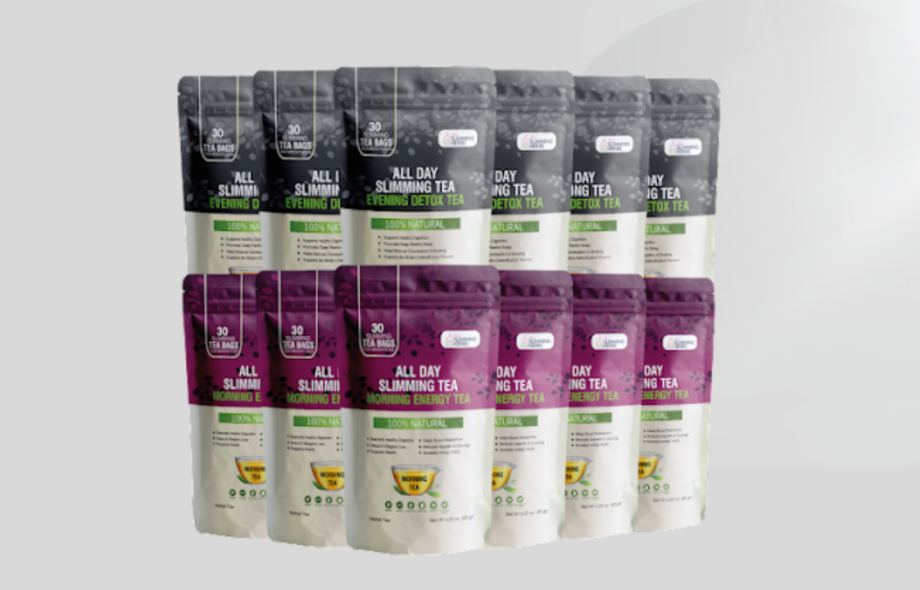
All Day Slimming Tea Safe Side Effects
Slimming teas often promise fast results, detox, metabolism boost, better digestion. All Day Slimming Tea is one such product that many people are curious about in 2025. But natural or herbal doesn’t mean risk-free. If you’re considering using it, it’s smart to understand what side effects are possible, how to reduce risk, and whether it’s safe for you. This article breaks down what users are reporting, what the science suggests, and how to use this tea safely so you can get benefits without unwanted problems.
Visit Official Page to Get Original Drink
How Slimming Teas Work & Why Side Effects Happen
All Day Slimming Tea usually comes in two blends: one for daytime to boost energy/metabolism, and an evening blend to ease digestion and reduce bloating. Some herbs are used as mild stimulants or laxatives; others for flavor and digestion. Because of those active herbs (like senna, green tea, peppermint, ginger, etc.), your body may respond in different ways.
Side effects often happen because:
Some ingredients stimulate bowel movement or act as laxatives.
Some plants are mild diuretics (increase urination) which can affect fluid and mineral balance.
If there’s caffeine (or herbal stimulants) in the morning blend, people sensitive to stimulants may react.
Individual sensitivity (allergies, gut sensitivity) plays a big role.
So side effects are normal to some degree. What matters is how severe they are, how often they occur, whether they can be managed, and what your health status is before beginning.
What Users Are Actually Reporting — Firsthand Experiences
Real people who have used All Day Slimming Tea share mixed experiences. Many report positive things, but side effects are often mentioned too. Here’s a summary of what people are saying:
Some people say bloating and digestive discomfort in the first few days. This often comes from the evening blend (especially if it contains senna or similar laxative herbs).
Loose stools or more frequent bowel movements are common initially. Over time, this usually calms down for many, but some continue to have sensitivity.
Mild abdominal cramps: a few users say they felt cramping or mild discomfort after drinking the evening tea.
Increased urination: because of diuretic herbs, users often mention needing to pee more. For some, that’s manageable; for others, it feels inconvenient.
Sleep disturbance or jitteriness: people sensitive to caffeine say the morning blend (if taken too late) causes restlessness, trouble falling asleep.
Headaches, mild nausea: less common but reported in some reviews. Sometimes happens if the tea is strong or taken on an empty stomach.
Allergic reactions: rare but some individuals say they had reactions like skin irritation, mild throat discomfort, or feeling uneasy after consuming because of one herb or another (like licorice root, ginger, etc.).
These reports suggest that while many tolerate the tea fine, a non-trivial number have mild side effects, especially early on or if usage is more than minimal.
What the Science & Herbal Medicine Tells Us
Looking beyond user reviews, some herbal medicine research gives insight into risk factors and side effects of the kinds of ingredients usually found in slimming teas like this one.
Senna: Commonly used as a laxative. Short-term use is generally safe for many people. But long-term or heavy use can lead to dependence (i.e. your bowels being reliant on stimulant laxatives), possible irritation of the gut lining, or electrolyte imbalance. Herbal medicine guidelines often say “use senna for occasional relief, not daily for long periods.”
Diuretic Herbs (like dandelion): They help reduce water retention temporarily. But they also increase urine output; if you don’t drink enough water, this can lead to dehydration or loss of minerals (sodium, potassium) which are important for muscle, heart, kidney function.
Caffeine / Stimulants from tea sources (green tea, oolong, etc.): These increase alertness, metabolism slightly, but overuse or sensitivity can cause anxiety, increase heart rate, raise blood pressure, sleep problems.
Ginger, Peppermint, Licorice, Other Digestive Herbs: Many of these are mild and well tolerated. But in sensitive people, peppermint or ginger can irritate the stomach lining; licorice, in high amounts or long duration, may affect blood pressure or interact with medications.
Allergy Risks: Natural herbs are complex: people who are allergic to one plant family may react to related herbs. Also, herbal supplements are less regulated, so purity or hidden contaminants can vary.
Interactions with Medications & Health Conditions: For example, people using blood pressure medications, diuretics, or medications cleared by the liver may have interactions. Those with kidney or liver disease may be more vulnerable. Pregnant or breastfeeding people are a special case: many herbs are not well studied in pregnancy, so risk is uncertain.
Who Should Be Particularly Careful — Risk Groups
There are certain groups for whom All Day Slimming Tea (or any similar herbal slimming tea) may pose more risk. If you fall into one of these, extra caution is needed:
People with pre-existing digestive conditions (IBS, Crohn’s, ulcerative colitis, GERD etc.)
Those sensitive to caffeine (anxiety, heart arrhythmia, insomnia risk)
People with kidney or liver issues
People taking certain medications (especially laxatives, diuretics, blood thinners, blood pressure meds, etc.)
Pregnant or breastfeeding people
Children or teenagers
Those who are dehydrated or have electrolyte imbalance already
For these groups, it’s better to consult a healthcare professional before starting.
How to Use All Day Slimming Tea More Safely — Tips & Best Practices
If you decide to try this tea, there are ways to reduce risk and side effects while maximizing potential benefits. These practices help your body adapt more smoothly.
Start slowly: begin with one cup (morning or evening) every other day. See how your body reacts before moving to daily or two cups.
Follow recommended dosages: don’t overbrew, don’t steep too long, don’t use more tea bags than advised. Over-strengthening increases risk.
Stay well hydrated: drink enough water (especially when using diuretic or laxative herbs). This helps avoid dehydration and supports kidneys.
Use with food: drinking the tea after a light meal (or with food) can buffer some sharp digestive effects or reduce nausea.
Avoid late drinking of the morning blend: if it has caffeine, consuming too late in the day may disturb sleep.
Cycle off: don’t use daily forever. Give your system breaks. Some users stop using the evening blend several days a week, or take breaks weekly. This prevents dependency, gives gut a rest.
Monitor how you feel: watch for signs of dehydration (dark urine, dizziness), digestive distress (persistent cramps, diarrhea), or allergic signs (rash, swelling). If symptoms are severe, stop use.
Be cautious if using medications: ask your doctor whether any herbs in the tea might interfere with your meds.
My Honest Conclusion: Is It Safe Enough?
In my view, All Day Slimming Tea seems relatively safe for most healthy adults, if used responsibly. The side effects are likely mild and temporary for many users. Some people may barely notice anything, while others with sensitivity will feel more. That’s natural with herbal blends.
However, it is not risk-free. If someone expects perfect tolerance or no adjustments, that’s unrealistic. The strongest risks come if people try to use it as a substitute for healthy eating, sleep, or ignoring signals from their body.
If I were recommending it, here’s what I’d tell a friend:
“Try it for a few weeks, but don’t expect magic. Use the morning tea when you need an energy boost, the evening tea with caution (start light). Drink enough water. If you feel off — stop for a few days. If you have health issues, get a doctor’s ok first.”
If you do that, the potential upside (less bloating, better digestion, mild weight support) likely outweighs mild and manageable risks.
Final Take & What To Ask Yourself Before Buying
Before you jump in and buy All Day Slimming Tea, ask yourself:
Am I sensitive to caffeine or do I avoid stimulants?
Do I have digestive issues already?
Am I clear on what side effects might happen and okay dealing with minor discomfort?
Can I commit to drinking water, eating well, sleeping enough — i.e. making lifestyle support the tea?
Have I checked whether any herbs in the blend could interact with my medications or conditions?
If your answers lean towards healthy baseline status, and willingness to use carefully, it might be worth trying. But if you have health complications, or dislike even small discomfort, you might want to start with gentler alternatives or consult a professional.
 :
https://www.pinterest.com/rudyzenreviews/
:
https://www.pinterest.com/rudyzenreviews/

